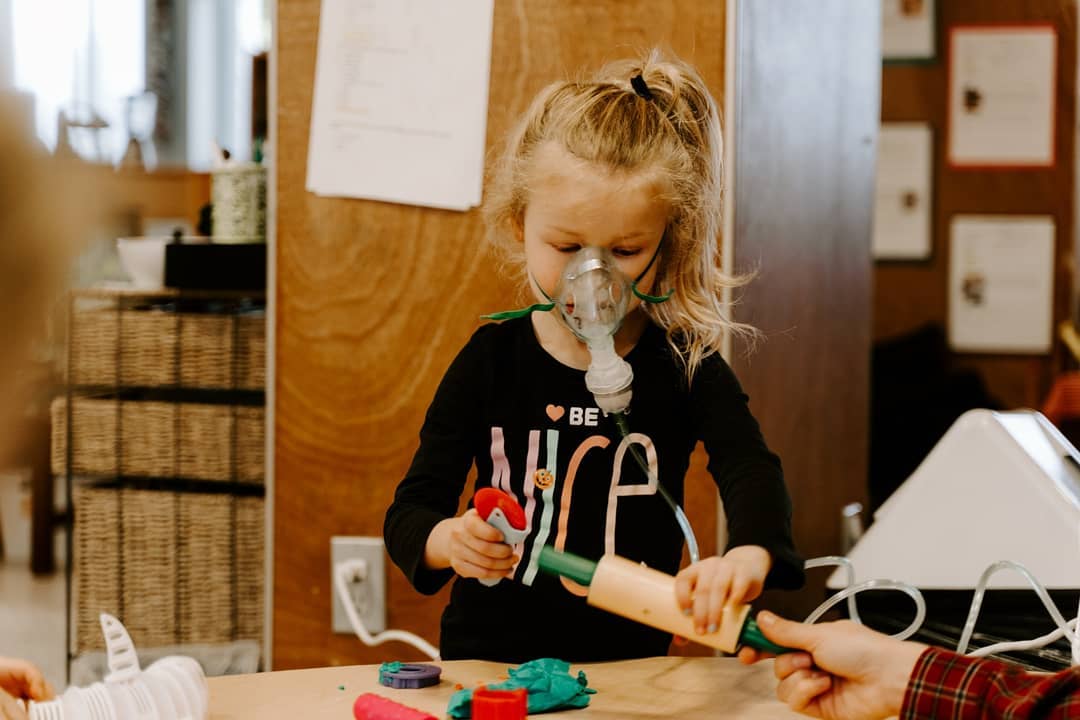Two months into the pandemic in Canada, the implications of the dual economic and health crises are coming into focus.
Results from our latest Sector Monitor Survey titled “Charities & the COVID-19 Pandemic” show that 69% of respondents had seen a decline in revenues and only 20% believe they will be able to continue their current level of operations for 3 to 6 months. We have heard from hundreds of charities, nonprofits and social enterprises from across the country about what they’re experiencing on the ground. This blog post, which focuses on operational challenges, is the second in a series sharing some of those COVID-19 sector impact stories.
*Hey - before you read this post, show your support for the sector by taking 60 seconds to send a letter to Justin Trudeau asking for a grant stabilization fund which would provide a vital lifeline to ensure charities and nonprofits will be here to support communities through this pandemic and into recovery.
Click here to send.*
A slow digital transition is no longer an option
When the COVID-19 crisis began to unfold in Canada, public health orders asked anyone able to work from home to do so. Our research shows that 54% of charities have now transitioned their services online. Unfortunately, the sector has historically been encouraged by donors and funders to minimize administrative and operational costs - which can include technology. This chronic under-investment in the sector’s core operations makes the transition to remote work quite difficult for many.
Take for instance, Camrose Open Door, which provides social services for youth. The organization did not have enough computers or phones for all of their staff to work from home, and needed to source new funding to buy some at a time when they have seen a 75% drop in donations.
Beyond the substantial cost of the work-from-home transition, Stella’s Place, a mental health organization in Toronto, told us that remote work has been complicated by the need to comply with provincial health record management protocols when storing private information. They cannot, for instance, store records on American servers -- which precludes them from using most cloud-based applications.
Layoffs, restructuring, and the rush to meet rising demand
According to our research, 30% of charities have already laid off staff and 55% say new or additional layoffs are a possibility. This presents major challenges to the delivery of programs and services.
Cook Street Village Activity Centre, which serves older adults and seniors in Victoria, British Columbia, is doing all it can to combat social isolation among its community members who are at-risk for COVID-19. When lockdown began, their staff called each member weekly and provided opportunities to connect online. This task became nearly impossible when they were forced to lay off virtually all staff.
Hope’s Home, an organization that provides early childhood education for children with complex medical needs in Saskatchewan, was forced to pursue layoffs when the government mandated smaller child spaces per classroom. Due to these changes in combination with parents not being able to return to work, the organization had a large drop in earned revenues from childcare fees. With revenue already worrisome, they were also forced to cancel their biggest fundraiser of the year. This is presenting a major challenge as they try to provide safe care to their kids.

Hope’s Home, an organization that provides early childhood education for children with complex medical needs in Saskatchewan.
Keeping staff, clients, and volunteers safe
While some organizations can suspend services or move their programming online, many frontline organizations serving vulnerable populations cannot, and have had to react quickly to put new health and safety measures in place.
One such organization is Chez Willie, a day centre for the homeless run by the Val d’Or Native Friendship Centre. Unable to comply with social distancing rules in their normal location, they quickly pivoted to ensure the safety of their staff and clients by moving to a larger location which is normally used as a market in the summer.
Back at Hope’s Home, the team has been able to procure some PPE, which is essential as many of their kids have compromised immune systems. However, if there is an outbreak at the facility, they risk running out of PPE and being forced to shut down. Because the organization provides childcare to children with complex medical or developmental needs, it has allowed 107 parents to maintain employment who otherwise wouldn’t be able to. A closure would be devastating for the families who depend on their programs.
EMBERS, a social enterprise that provides temporary employment for individuals with barriers to employment, has also had to make major changes to their operations. They continue to dispatch employees to construction sites, which are still open in British Columbia. Normally, they welcome up to 50 people at a time to their site each morning, where workers socialize over a free breakfast while waiting to be dispatched. Now, they have installed plexiglass in their reception area to protect staff, and are limiting the number of people allowed in their offices to two. They continue to hand out food outside, but worry about the impact that the inability to socialize will have on their workers - many of whom already face social isolation and mental health issues.
New employee supports to counter mental health strain and the care burden
Economic stress, anxiety, social isolation, uncertainty, additional care responsibilities, and in some cases family violence are adding up to create a heavy mental health burden during the COVID-19 pandemic.
Go Green Youth Centre in Toronto, which strives to relieve poverty and help disadvantaged youth, is all too familiar with these challenges. In April, a member of their leadership team lost a loved one to COVID-19. Many of their young staff have new care responsibilities, as they are expected to shop for older family members who are staying home to protect their health. They have found that supporting staff through these incredibly difficult times has required a lot of flexibility, empathy and resources.
In response to the extraordinary circumstances, many employers are finding that they need new or updated HR policies. In some cases, this means changing sick leave policies to waive a requirement for a doctor's notes. At the Greater Trail Community Skills Centre, which provides economic and social development to the Lower Columbia River Region in British Columbia, they’ve mandated an hour of exercise away from the computer for their staff each day, whether it be gardening, yoga, running, or any other activity staff choose in order to make remote work healthier both mentally and physically.
Our work continues.
At this point, it is clear that there will be no quick return to the “old normal” of the pre-pandemic days. We’re currently focusing our advocacy efforts on a Sector Resilience Grant Program, which would provide funding to help cover core operating costs and support organizations not included in the Canada Emergency Wage Subsidy. We’re also continuing to gather stories from the sector about how COVID-19 is impacting them - if you’d like to submit your own, please do so here.
We’ll continue to work alongside the sector through the COVID-19 crisis and beyond to strengthen our collective ability to serve communities, individuals, animals and the environment, at home and abroad.


